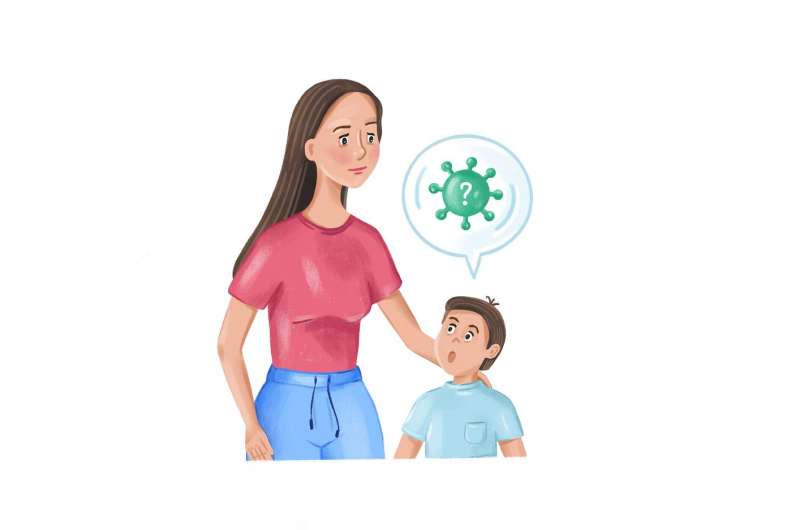Moms report mild to high levels of COVID-19 anxiety and insomnia

Many mothers are experiencing an increase in insomnia severity and mild to high levels of acute COVID-19 anxiety, according to a new study by researchers at Ben-Gurion University of the Negev and The Max Stern Yezreel Valley College in Israel.
"In the study, we addressed, for the first time, consequences of the COVID-19 pandemic and home confinement on maternal anxiety, insomnia, as well as reports of sleep problems among children between six and 72 months old," says Prof. Liat Tikotzky, head of the BGU Parenting, Child Development and Sleep Lab and a member of the BGU Department of Psychology. The study was published by the Journal of Sleep Research.
The results indicated that maternal clinical insomnia (Insomnia Severity Score > 15) during the COVID-19 pandemic more than doubled to 23% during the pandemic, compared with only 11% before the pandemic. Approximately 80% of mothers also reported mild to high levels of current COVID-19 anxiety.
In the study, mothers were asked to complete a self-reporting questionnaire with reference to two time points: (a) retrospectively one to two months before the COVID-19 outbreak in Israel, and (b) during home confinement. The researchers then computed a score representing the mother's perception of change in her sleep quality.
"We further observed that mothers who reported an increase in insomnia symptoms had significantly higher levels of acute COVID-19 anxiety than mothers who reported no change in insomnia symptoms, while no group differences were detected in their typical (trait) anxiety levels, suggesting that current anxiety may contribute to the increase in severity of insomnia symptoms," Prof. Tikotzky says.
Moreover, the researchers found that about 30% of mothers reported a negative change in their child's sleep quality and a decrease in sleep duration. However, it is important to note that the majority of mothers reported no change in their child's sleep quality, duration, arrangement, and their perception of child's sleep as problematic. Moreover, 12% of mothers even reported a positive change in their child's sleep quality, and 25% reported an increase in sleep duration.
Finally, the researchers observed that mothers who reported higher scores of insomnia were also more likely to report that their children had poorer sleep quality and shorter sleep duration. This is consistent with previous studies demonstrating significant links between maternal and child sleep quality during normal times.
The findings emphasize the importance of further exploring familial resiliency factors that may explain the different patterns of responses in children's and mothers' sleep during times of crises. This is particularly important given the role of sleep in child development and parental functioning.
More information: Ghadir Zreik et al, Maternal perceptions of sleep problems among children and mothers during the coronavirus disease 2019 (COVID‐19) pandemic in Israel, Journal of Sleep Research (2020). DOI: 10.1111/jsr.13201

















